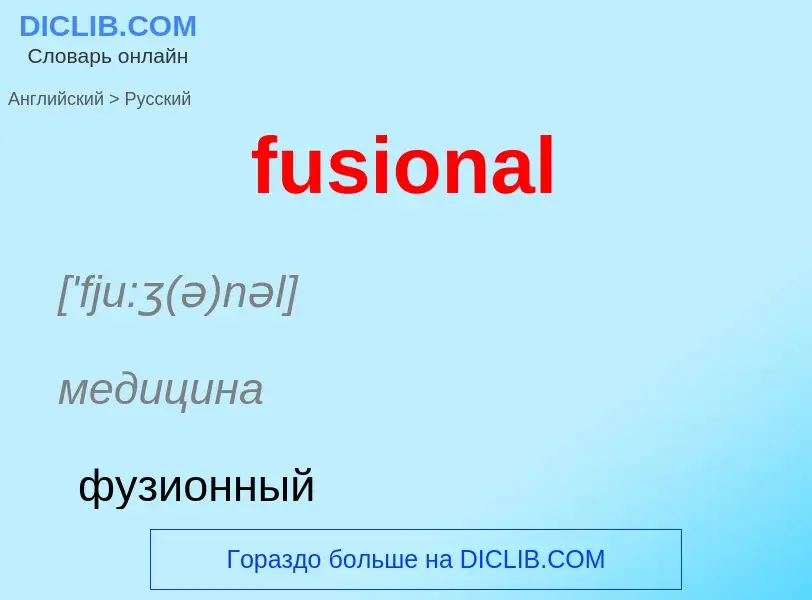Перевод и анализ слов искусственным интеллектом ChatGPT
На этой странице Вы можете получить подробный анализ слова или словосочетания, произведенный с помощью лучшей на сегодняшний день технологии искусственного интеллекта:
- как употребляется слово
- частота употребления
- используется оно чаще в устной или письменной речи
- варианты перевода слова
- примеры употребления (несколько фраз с переводом)
- этимология
fusional - перевод на русский
['fju:ʒ(ə)nəl]
медицина
фузионный
прилагательное
лингвистика
флективный
математика
флективный язык
confusion
Определение
Википедия
Fusional languages or inflected languages are a type of synthetic language, distinguished from agglutinative languages by their tendency to use a single inflectional morpheme to denote multiple grammatical, syntactic, or semantic features.
For example, the Spanish verb comer ("to eat") has the first-person singular preterite tense form comí ("I ate"); the single suffix -í represents both the features of first-person singular agreement and preterite tense, instead of having a separate affix for each feature.
Another illustration of fusionality is the Latin word bonus ("good"). The ending -us denotes masculine gender, nominative case, and singular number. Changing any one of these features requires replacing the suffix -us with a different one. In the form bonum, the ending -um denotes masculine accusative singular, neuter accusative singular, or neuter nominative singular.

